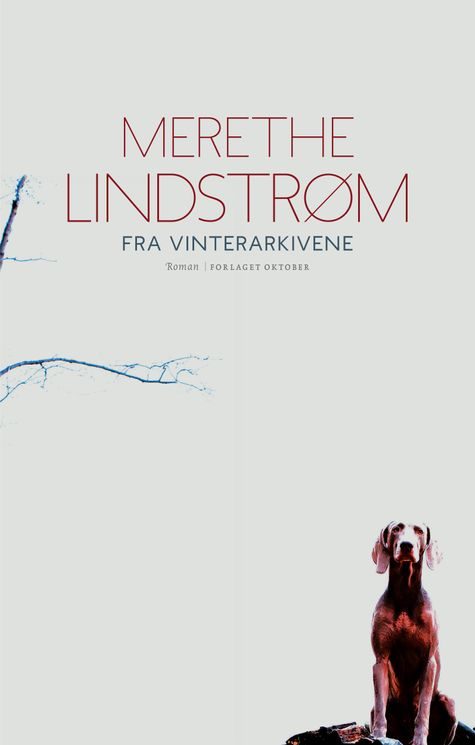“Lindstrøm’s beautiful novel [is] a thought provoking portrait of a struggle to live endure and survive”
Svenska Dagbladet, Sweden
“Hypnotic … As a reader I feel like I’m being sucked into the text, to a place I want to stay … Even though Lindstrøm’s story deals with difficult themes, it is light years away from the genre of self-revelatory, scandalous books. As a text it feels one hundred percent true, but its authenticity is in the prose, in its author’s ability to articulate and give shape to the drama of life”
Sydsvenskan, Sweden
“Merethe Lindstrøm captures life in all its frailty and indomitability … In spite of all the grief, there is a shimmer of hope in Lindstrøm’s beautiful, flowing prose”
Norrköpings Tidningar, Sweden
“A powerful depiction of the disease called depression, and of how love forces you to hit your head against loneliness … brave and well written”
Östgöta Correspondenten, Sweden
“A brilliant love story … another step towards greatness by this singular and hypersensitive writer … The reader is completely engrossed. And as a guarantee of the book’s unputdownableness: I have been reading it on the train and in subways, and on platforms in snow, wind and cold without losing concentration … To read Merethe Lindström wih a heart ticking fast, because her prose is so incredibly good, so true and naked, and has such nerve, is to acknowledge your own superficiality”
Dagens Nyheter, Sweden
“Winter white and cold, compassionate and warming, she evokes a marriage resting on shaky ground … A very beautiful winter journey … Yes, I am enthralled – I was already enthralled by Lindström – but I like this book even more than the other three I have read”
Swedish Radio, Sweden
“life-giving in its portrayal of the creative process, relationships and nature”
Göteborgsposten, Sweden
“A strong and personal tale about a life where anxiety eats the soul … Lindstrøm’s prose is repetitive; insisting. The sentences are divided into short parts, but long paragraphs. It gives the text its own rhythm, that she alone can master … Lindsrøm knows what she is doing. And she does it well … For those who can endure such a depressing life story, there are little flowers of love to be picked by the side of the road. Lindstrøm planted them there. There is no other way to put it. ”
Aftenposten
“Lindstrøm writes beautifully, naked and rawly in her most autobiographical novel so far … Lindstrøm writes precisely, both of the worn out and the wonderful. Poetic images and nature-lyrical parts co-exist with depictions of humiliation and existential need. De relationship between little Merethe and her father is especially well described … a somewhat undecided, yet beautifully formulated declaration of love to those who are closest, to life as it is.”
Dagbladet
“Poetic, sharp and humorous about life’s rough-goings and monumentally unsentimental about the love that conquers all … written with the glance of a survivor, a competent observer’s razor-sharp focus and a linguistic master’s poetic nerve. From the Winter Archives is most of all a tender love story … Tender, yes, but never anywhere near sentimental … The book is the nearest and most heartbreaking when it is written as a letter to the life partner.”
5/6 stars, Adresseavisen
“In Lindstrøm’s universe, life is lived on the edge of the unbearable, wrapped as pure pleasure … There is dwelling pensiveness i what she writes, and a great deal of gravity. And the many depictions of nature, suggestive and feather-light … a strong meassage from an author who masters her literary instruments to an unusual degree. Few authors can display the beauty and pain of life in such a raw and fine prose as Merethe Lindstrøm”
Dagsavisen
“Lindstrøm raises her game significantly … Not only does the prize-winning author give us a new key to her books, the prose flows freer … She is one of our leading authors of the short, precise form – the Askildsen string of Norwegian literature … She forces another way to write … From the Winter Archives shows us that the authorship has a strong, modernistic string to it. With impressive energy, she works this track, and it really involves a different rhythm of language, even though the theme has been latent all along”
Vårt Land
“The story changes between light and dark, cold and warmth, fog and clarity, the open and the closed, the present and different fragments of memory that provide the foundation for a deeper understanding of the characters’ situation … Careful descriptions of nature, landscape impressions and descriptions of atmosphere reinforce the understated feeling of sorrow … But above all it is a novel of great love, the kind that keeps you going in spite of everything, and that therefore moves towards lighter times and a quiet, unredeemed hope.”
Stavanger Aftenblad

